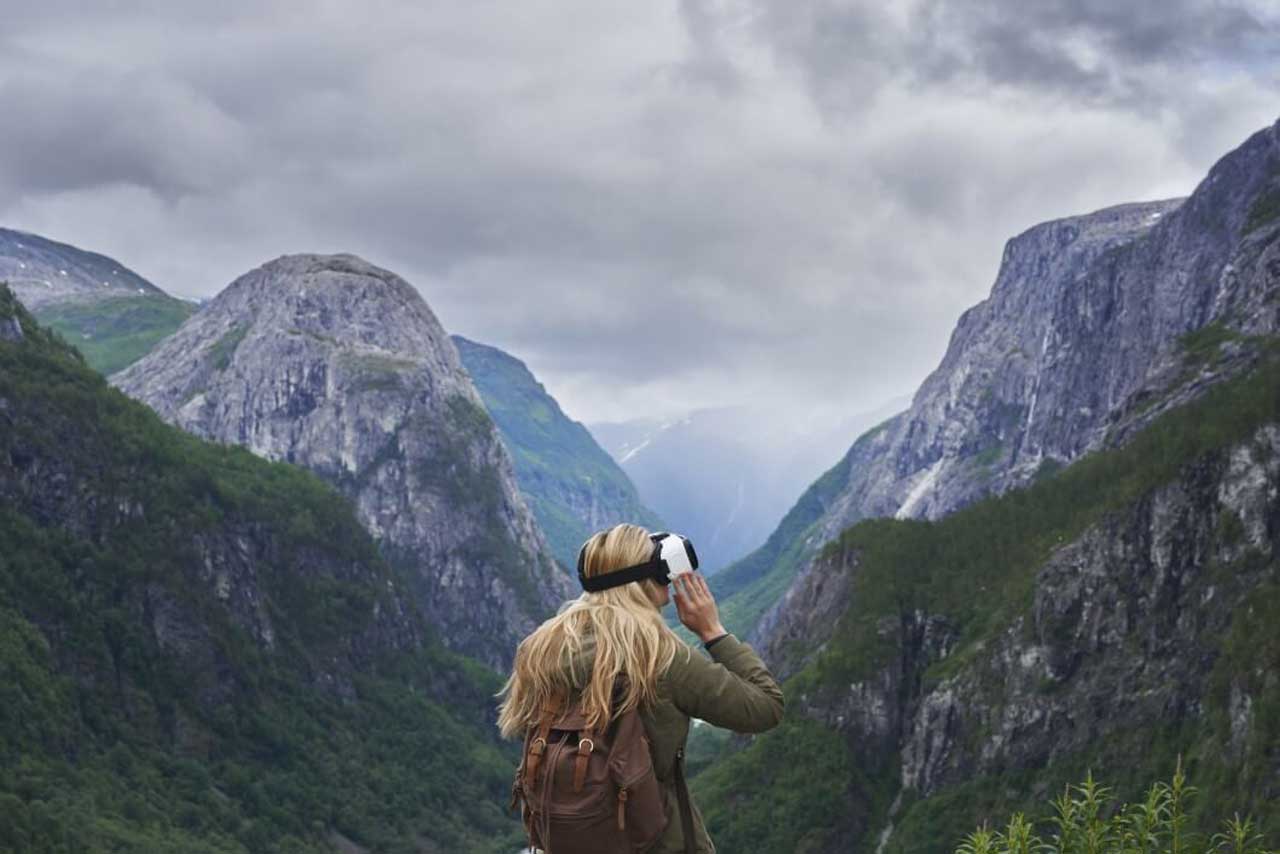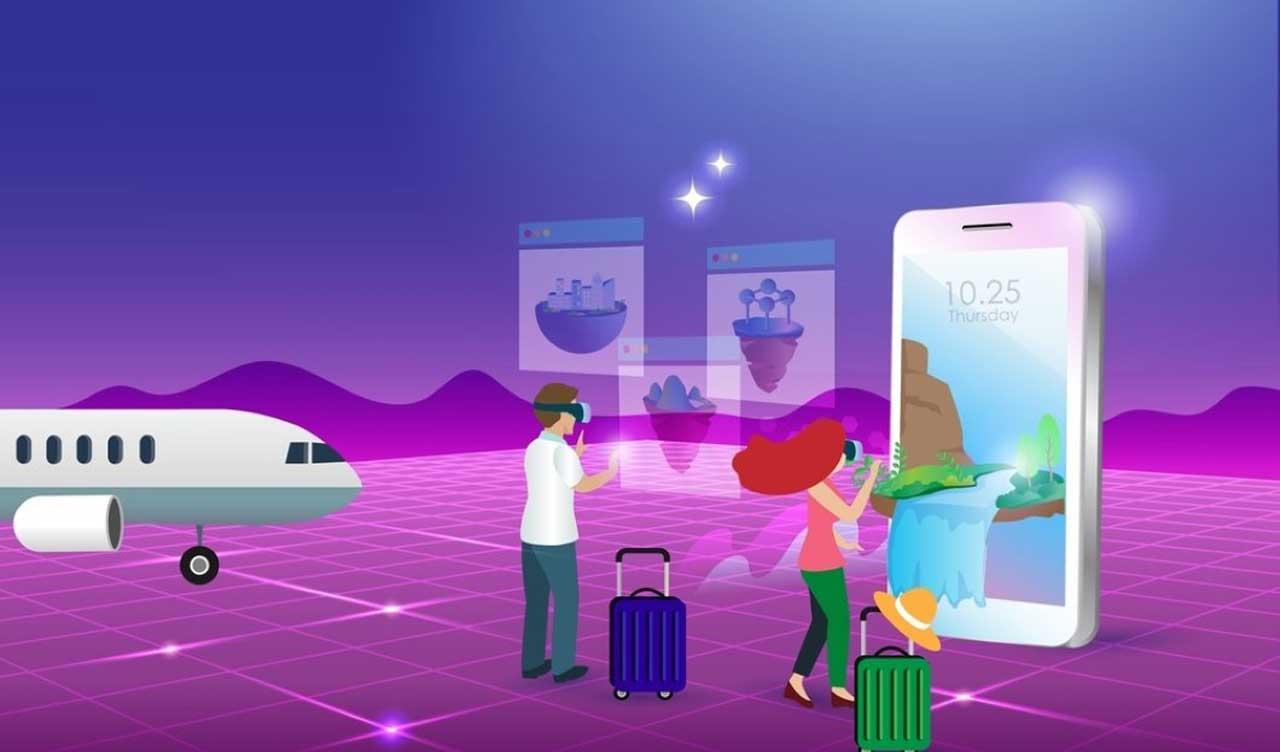Does tourism have a future in the metaverse? While it seems clear that it will never be able to replace the emotions of a real “journey”, the virtual world has a lot to offer.
“Let’s be honest, the metaverse will never replace tourism,” says Sophie Lacourt, chair of the Innovation Tourism Lab at Esthua (University of Angers). But it could be a very interesting addition.” This opinion is shared by tourism professionals. The Metaverse will be an evolution of the market, but it will not replace the travel experience, at least not shortly.”
Virtual tourism, real interest
A study presented by Dynata examines tourism in the metaverse. The study, entitled “The New Economy of Experience” and conducted among 11,000 consumers in 11 countries, showed that 40% of those surveyed said they were interested in a virtual journey. 51% even said that they are tempted to visit a virtual museum, art gallery, or exhibition. Another study conducted by Accenture in 35 countries with 24,000 respondents confirms the interest of the general public in such virtual immersions.
According to the study, 50% of people are interested in acquiring travel experiences, such as staying in a hotel or taking classes in the metaverse. For millennials, this number even rises to 55%. For comparison, among baby boomers, this figure is only 29%.
Because you don’t want to fly, because you prefer to stay at home during a pandemic, as a solution to a disability problem, a limited budget, or to avoid long-distance travel fatigue when you get older… There can be many reasons for choosing virtual travel.
More than just “virtual tours”
“In my opinion, the metaverse will not necessarily be interested in showing iconic places in 3D, but rather it will interfere with the journey itself,” says Sophie Lacour. This will enable the creation of advanced websites that will make it easier to prepare for a trip, detailing hotel rooms, experiences offered at the destination, etc.”
Specifically, a hotel – or hotel chain – will buy a meta-version of land, if possible on a (virtual) waterfront or next to a busy place (nightclub, luxury brand store, etc.) to attract visitors. “Like in real life, in the metaverse, you need to choose the right place,” notes Sophie Lacour. Then you need to recreate the hotel, giving it a similar look and feel, suggest redevelopment of various types of rooms, restaurant area, lounge, etc. And offer an overview of additional products such as excursions”. In this space, the hotel will also be able to create, revitalize and manage its community by offering regular events. Attending a small metaverse concert to immerse yourself in the atmosphere of your last vacation is much more pleasant than receiving a promotional email.

Tourism in the metaverse is a real bet for the future
However, it is still very expensive to start because the technology is not yet fully developed. Perhaps it will happen in five years, but not before. Then you have to choose which metaverse to focus on. There are 25 known metaverses, 150 moderately developed ones, and several thousand that are just beginning to emerge. It is difficult to say which of them will be at the forefront in the next few years.
Experts estimate that it will take five to ten years for the metaverse to become mainstream.
The attractiveness of the NFT
While the metaverse is still in its infancy, NFTs, on the other hand, are already attracting tourism professionals. The idea is to invite people who love the resort to purchase Non Fungible Tokens, often digital visual art that proves their love for an event, building, beach, etc. The city of Cannes just tried it.
After the Cannes Film Festival was dubbed into Fortnite, the city auctioned off some of its legacies in the form of NFTs during the Cannes Lions festival. Boulevard de la Croisette, Palais des Festivals, Port Canto, Île Sainte Marguerite, underwater ecomuseum, Malmaison, Old Port, Forville market, Souquet, Pointe Croisette or the Georges Méliès campus were sold virtually on the Artcurial website. Around 330,000 euros were raised (including 50,000 euros for the Palais des Festivals alone). Each lucky customer received not only a digital representation of the place but also a real 3D model.
For the municipality, this is a new and innovative way to finance environmental and social activities. Thus, 10% of the collected amount was transferred to the Cannes Endowment Fund for the development of projects related to the environment. According to this principle, it will be possible to leave the NFT for a trip to the Maldives, an excursion to the Svalbard islands in northern Norway, or a trip to Nepal … Undoubtedly, this can tempt tourists. In short, a new memory factory.

